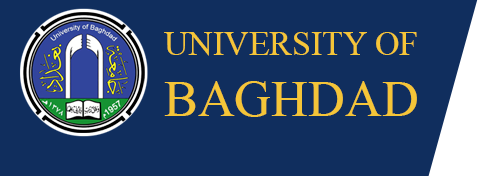Center of International Studies Hosts Director of Operations at the High Commission of Elections in Iraq
The Center of International Studies at the University of Baghdad invites and hosts , in coordination with the unit director of cultural relations in the center in the presence of Prof. Dr. Riadh Aziz Hadi Scientific Assistant of President of the University of Baghdad, Dr. Walid al-Zaidi, general director of operations in the Independent Higher Commission of Elections in Iraq who delivered a lecture entitled (electoral experience in Iraq : achievements and challenges) on Tuesday, September 25th, 2012 at Jihad Hassani Hall at the University. Prof. Dr. Abdulsalam al-Baghdadi managed the lecture and with the presence of university professors of politics and media specialties and postgraduate students.
The lecturer refers to the achievements made in Commission’s experience and the challenges they encountered previously or you will encounter in the future. Al-Zaidi stated the roles witnessed by the electoral experience in Iraq since 2004 and till now through the elections of the Parliament in 2005 and then the provincial councils in 2009 and the Parliament in 2010 and talked about the record of Iraqi voters abroad to the hard work that culminated in what he had achieved inside the country and planning for elections of the Parliament in 2014.
The lecturer mentioned the experiences of elections that passed in Iraq and the important lessons learned in the development of the work of the Commission and the adoption of the food stamp card as a record of voters due to the lack of a general census of the population. Then he referred to the process of data entry and updating the voter register that took place in Iraq in the last years in the elections of Kurdistan in 2009, and the Parliament in 2010 and the work is continuing with support and advice from the United Nations.
The number of voters in 2004 was about 13.5 million and the increase in Iraq is between 650-700 thousand annually, and the number of voters in 2010 reached about 18.250 million and now in 2012 is up to 21 million voters. Then Al-Zaidi discussed reducing the fraud despite visits of the Commission to several countries such as Australia, India and others which are also not free of fraud where there are no completely fair elections even in the United States, France and Europe. Reports of the United Nations and local organization to monitor confirmed to control and reduce fraud in Iraq.
The lecturer indicated that the Commission adopts transparency in cooperation with all political entities as well as the dependence of the national staffs that are gradually replaced by foreign and international ones, which generates a lot of confidence and credibility with rivals and candidates in any next elections.

